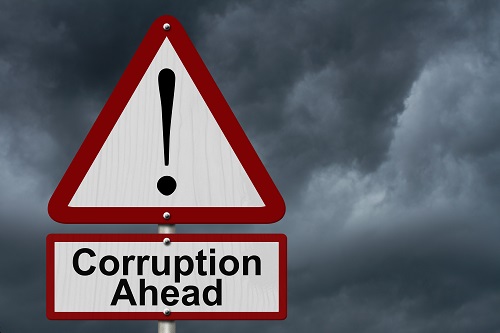Most government employees are honest people who are not primarily motivated by money. They’ve chosen to go into public service, receiving a lower salary than they would for a similar job in the private sector.
Unfortunately, there are bad actors in the public sector. For those employees, crises like the one we’re currently experiencing present opportunities for fraudulent activity.

Fraud experts have identified red flags that signify an employee is statistically more likely to perpetrate a fraud – these red flags have been discussed in previous posts about the Fraud Diamond and Fraud Triangle. Unfortunately, the current crisis we’re in, and the government response to it, is likely to give rise to some of these red flags.
More Pressure – One key factor in the Fraud Triangle is that an employee has a pressure they need to solve. Government employees aren’t likely to immediately lose their jobs due to financial stress (financially-related reductions in the public sector are typically preceded by a more restrained budget, which only gets passed once a year or less). They are, however often married to private-sector workers who do face such pressures. They are also likely to be paying more for childcare due to schools and daycares closing, and they’re likely to have lines of credit reduced. Any of these things can raise the financial pressure on an employee, giving them a need for money they don’t have.
More Opportunity – To combat a rapidly unfolding crisis, governments are passing new legislation that will need to be implemented very quickly. They’re also declaring emergencies, waiving regulations that are designed to prevent wasteful spending but also have the side effect of slowing government responsiveness. Both the rapidly implemented new legislation and the waiving of regulations could provide an opportunity for an employee to perpetrate a fraud that would not be present in normal times.
Easier Justification – In times of crisis, it’s easier for people to justify fraudulent acts in their mind. They’re likely to see a large amount of money pass to businesses and citizens under stress. They’re more likely to face financial pressures of their own. And they are less likely to believe that stealing will harm people personally if they’re siphoning a small amount of a large stream of money to their personal bank accounts.
As legislatures across the country work to prevent bankruptcy for people and businesses alike, it’s an important time for agency investigators and Inspectors General offices to make sure that people aren’t taking advantage of an epidemic to pad their own pockets.
To learn how CMTS can help your agency close cases more efficiently, call us at 855-667-8877 or email us at Team_CMTS@securecasemanagement.com.
